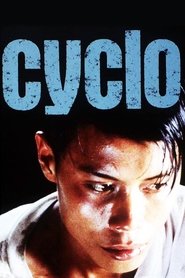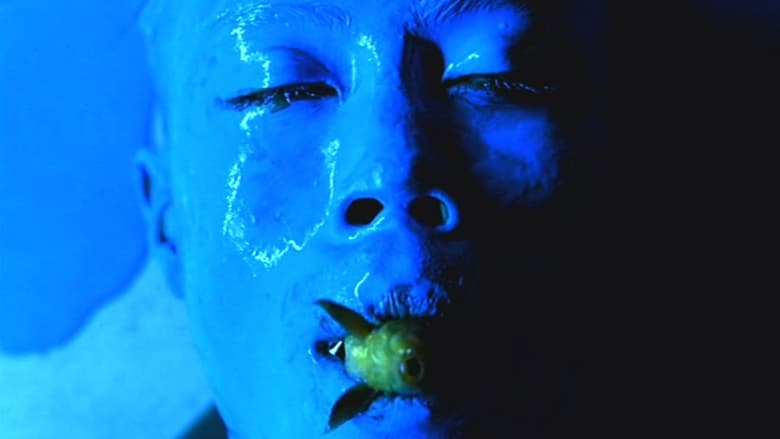“Cyclo” (1996) is a raw and intense Vietnamese drama that unveils the dark underbelly of a city. This visually stunning film portrays the life of a young cyclo driver navigating through the chaotic streets, resembling a cog in the heartless machine of society, as he becomes engulfed in a world of crime and desperation. Struggling to escape the cycle of violence, he finds himself trapped, like a moth drawn towards an irresistible flame. The movie paints a haunting picture of humanity’s frailty and offers a thought-provoking exploration into the corrupting forces of urban life.

CLICK HERE🠣🠣🠣☑️_Watch Cyclo 1996 English Subtitles_
Review
The deeply unsettling film “Cyclo” transports its viewers to a dystopian world that is both hauntingly familiar and uncomfortably unfamiliar. Directed by Tran Anh Hung, this Vietnamese masterpiece unveils a profound commentary on the human condition, striking at the core of morality, corruption, and desperation. Drawing inspiration from George Orwell’s grim outlook on society, “Cyclo” masterfully weaves a tale that leaves an indelible mark on the minds of its audience.
Set in the bustling streets of Ho Chi Minh City (formerly known as Saigon), the film follows the harrowing journey of a young cyclo driver (played by Le Van Loc) as he navigates through a web of crime, poverty, and moral degradation. The cyclo, an iconic symbol of urban Southeast Asia, becomes not only the protagonist’s means of livelihood but also his prison.
The storyline portrays a nightmarish reality where survival hinges upon conformity or surrendering one’s soul to darkness. As Orwell once wrote, “In our age there is no such thing as ‘keeping out of politics.’ All issues are political issues.” The cyclo driver finds himself caught in a web spun by ruthless gangsters who exploit his innocence for nefarious purposes.
Through its captivating plot, “Cyclo” exposes the flaws in society that lead individuals down paths they never imagined walking. It forces viewers to confront uncomfortable truths about themselves and their own capacity for evil when confronted with extreme circumstances. The film serves as an unflinching mirror reflecting society’s underbelly – one we may prefer to ignore but must acknowledge if we are to address its festering wounds.
Le Van Loc delivers a poignant performance as the cyclo driver, capturing his character’s descent into despair with raw intensity. Loc masterfully portrays the inner turmoil faced by someone pushed to their limits – torn between preserving their humanity and succumbing to the suffocating weight of their circumstances.
The other cast members, including Tran Nu Yen-Khe, Nhu Quynh Nguyen, and Tony Leung Chiu Wai, lend their talents to amplify the film’s haunting atmosphere. Their performances paint a stark picture of a society where moral boundaries blur and humanity crumbles under the weight of survival.
The film’s historical context cannot be dismissed when understanding its impact. Released in 1995, less than two decades after the Vietnam War, “Cyclo” sheds light on the long-lasting scars borne by a nation ravaged by conflict. It explores the consequences of such upheaval on individuals and communities alike – exposing the cycle of violence and desperation bred by prolonged conflict.
Tran Anh Hung’s skillful direction brings this haunting narrative to life through mesmerizing cinematography. Each frame is meticulously composed to enhance the film’s bleak atmosphere – capturing both urban decay and human despair with equal measure. The use of shadow and light is reminiscent of Orwell’s evocative descriptions in “1984,” creating an oppressive yet captivating visual experience for audiences.
The score by celebrated composer Tôn Thât Tiêt adds another layer of depth to “Cyclo.” Combining traditional Vietnamese music with contemporary elements, Tiêt’s score accentuates the film’s emotional resonance – amplifying tension or offering solace in moments of despair.
Despite its critical acclaim and numerous accolades worldwide, “Cyclo” faced controversy within Vietnam itself upon release. Some believed it portrayed their country in an unfavorable light, while others praised its unflinching portrayal of reality. This reaction only underscores the film’s power to provoke dialogue and challenge societal norms – qualities often admired in Orwellian literature.
Critics lauded “Cyclo” for its unapologetic exploration of morality while acknowledging that it may not be for the faint-hearted. The raw depiction of violence and degradation can be overwhelming at times but serves a purpose in awakening audiences to the harsh realities experienced by those trapped within the cyclo driver’s world.
Gossip surrounding the film centered on the dedication and immersion of the cast and crew during production. Reports emerged of grueling filming conditions in Ho Chi Minh City, where actors mingled with the city’s inhabitants to absorb their experiences, making “Cyclo” an authentic representation of daily life in post-war Vietnam.
The film’s dialogue, while minimalistic, carries immense weight. With each word deliberately chosen for its impact, Tran Anh Hung crafts powerful exchanges that seize viewers’ attention. The dialogue acts as a conduit through which profound messages are delivered – highlighting Orwell’s belief that words possess the power to shape reality.
Undoubtedly, “Cyclo” stands as a testament to the power of filmmaking as a medium for societal critique. Its unflinching portrayal of human depravity and desperation draws direct parallels with Orwell’s works – urging viewers to remain vigilant against oppressive forces that threaten our very humanity.
In terms of production, “Cyclo” is an exemplary display of meticulous editing and attention to detail. Tran Anh Hung leaves no shot wasted, employing precise cuts and juxtapositions that heighten tension or emphasize emotional beats. Every frame contributes to building a world both familiar and alienating – mirroring Orwell’s ability to create dystopian universes that resonate with readers for generations.
While some critics argued that “Cyclo” lacked subtlety in its messaging, it is precisely this blunt approach that makes it so effective. The film unapologetically exposes society’s darkest corners and challenges viewers to confront uncomfortable truths – much like Orwell did through his own writings.
“Cyclo” serves as a cinematic testament to humanity’s capacity for both good and evil. It demands introspection from its audience, urging us not only to passively watch but also actively question our actions within a larger societal framework. It reminds us that even in the face of despair, there is hope for redemption, provided we are willing to fight against the cyclical nature of our circumstances.
In conclusion, “Cyclo” stands as an artistic triumph that resonates with Orwellian themes of societal decay, moral ambiguity, and the indomitable spirit of the individual. Its performances, cinematography, and direction come together to create an immersive experience that lingers long after the credits roll. Like Orwell’s works, “Cyclo” serves as a sobering reminder that complacency is a luxury we cannot afford and that our collective humanity must always be fiercely protected.
Technical Data

- Release : 1996-03-22
- Runtime : 123
- Genre : Drama, Crime
- Cast : Le Van Loc as Cyclo, Tony Leung Chiu-wai as Poet, Như Quỳnh as Madam, Hoàng Phúc as Tooth, Ngo Vu Quang Hal as Knife
- Crew : Christophe Rossignon as Producer, Alain Rocca as Associate Producer, Adeline Lecallier as Associate Producer, Benoît Delhomme as Director of Photography, Benoît Delhomme as Editor
- Revenue : 0
- Budget : 0
- Company : Cofimage 5, Les Productions Lazennec, SFP
- Popularity : 8.281
- Summary : Follows a young cyclo (bicycle cab) driver on his poverty-driven descent into criminality in modern-day Ho Chi Minh City. The boy’s struggles to scratch out a living for his two sisters and grandfather in the mean streets of the city lead to petty crime on behalf of a mysterious Madame from whom he rents his cyclo.
- Tagline :
